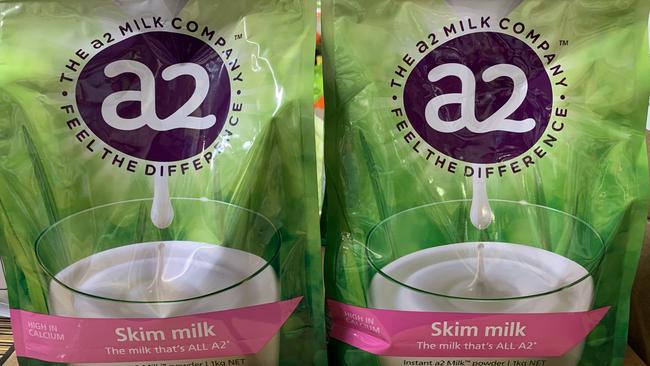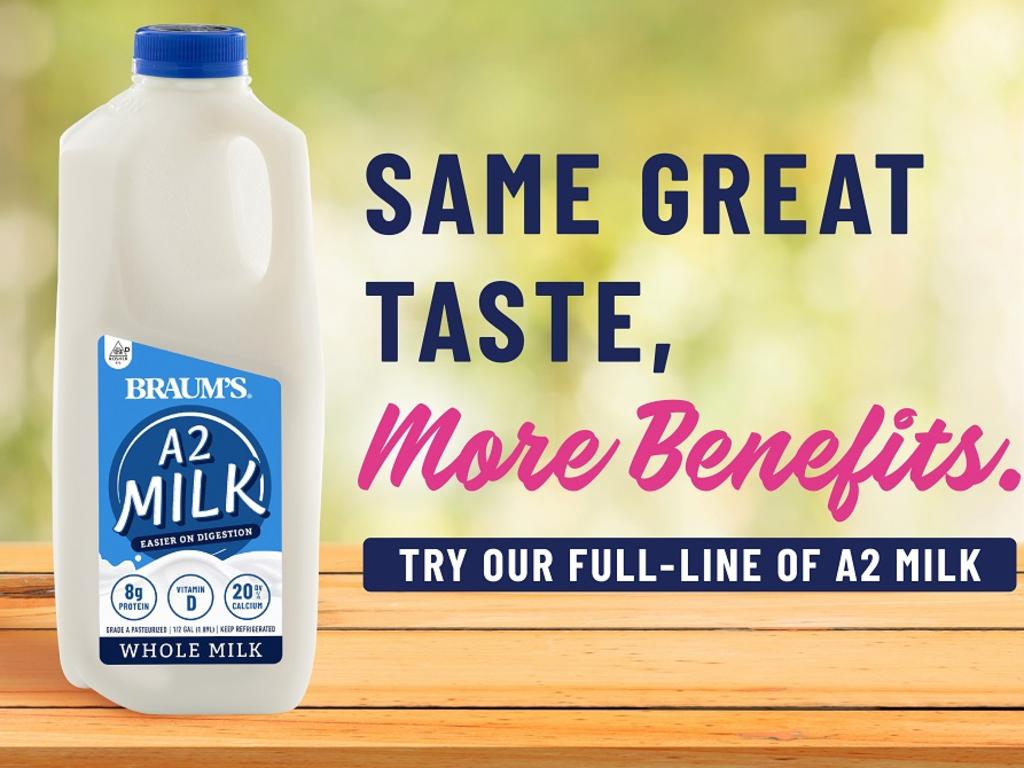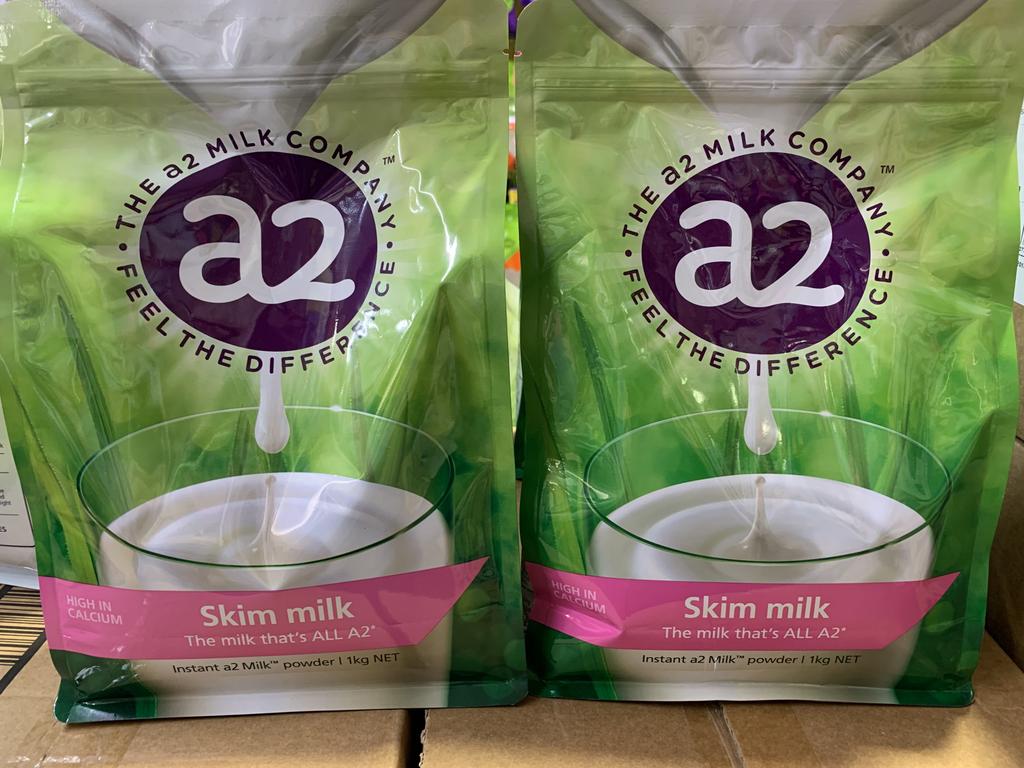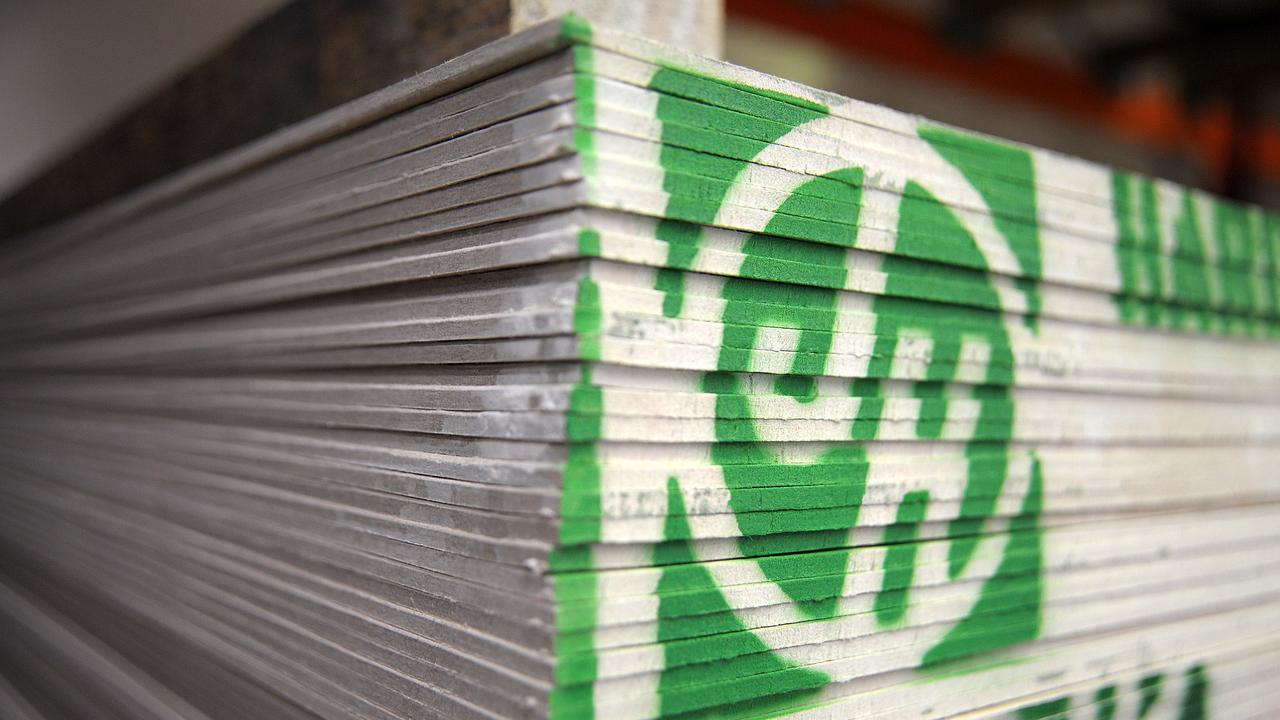A2 Milk sales hit by Victoria lockdown
Victoria’s lockdown has hit lucrative ‘daigou’ sales to China, forcing A2 Milk and others to refocus their outlook.

Companies relying on daigous, or resellers, to gain market traction in China have to rapidly change their strategies as COVID-19 and Victoria’s extended lockdown smashes the once lucrative sales channel.
A2 Milk shares dived 11.4 per cent on Monday after the company said Victoria’s hard lockdown had cruelled the daigou trade, forcing the company to slash its revenue forecasts.
Other companies with exposure to daigous have come under pressure, with Blackmores shedding 3.9 per cent, and goat milk-focused infant nutrition companies Bubs and Nuchev losing 2 and 1.6 per cent respectively.
But demand remains strong in China despite the daigou market drying up amid international travel bans and Victoria’s stage four restrictions curtailing much of the state’s warehousing and distribution capacity in the past six weeks.
Livia Wang, once titled the daigou queen and is now chief brand officer of Access Brand Management, which arranges product distribution in China, said that while the disruption in the daigou trade is temporary, companies who had relied on the resellers must focus on more legitimate sales channels.
“The demand is still very strong. My thinking for the opportunity going forward is to engage with more structure and legitimate global distributors,” Ms Wang said.
“If the products are good enough, it’s good enough to generate a demand from the consumer. Everything should be focused on the consumer rather than the channel movement because they will always change.”
Daigous have been an easy and attractive option for many companies looking to grow sales in China during much of the past decade. Initially, companies didn’t have to invest in expensive foreign distribution channels and marketing, with daigous buying products off Australian shelves and sending it back to China.
The reseller market sparked outrage among Australian consumers, particularly parents, who battled infant formula shortages five years ago as busloads of daigous swarmed into supermarkets and pharmacies, prompting stores — including Coles and Woolworths — to ration products.
But the daigou market has evolved from being just retail — comprising mainly students and tourists — to corporate operators, with companies supplying them directly.
While the retail daigou market has collapsed during the pandemic, A2 Milk chief executive Geoff Babidge said it was only in the past week that Victoria’s harsh lockdown hit the corporate daigou market.
And Mr Babidge said not even Premier Daniel Andrews announcing a partial easing of restrictions, which included warehouses returning to full capacity, could salvage its daigou in the near term.
“The reality is that once a channel starts to contract it takes some time to rebalance in respect of inventory through the various levels,” Mr Babidge said.
“At this stage we would still expect our sales in that segment will be soft for the balance of this first half (of the financial year).”
A2 is now expecting a modest increase in full-year revenue — 4-9 per cent up to $NZ1.9bn ($1.7bn) — versus the 33 per cent leap to $NZ1.73bm last year. The first half of the financial year will account for less than half of that, with the company forecasting $NZ725m to $NZ775m. Its EBITDA margin will remain around 31 per cent.
The downgrade comes as A2 Milk directors and executives sold big parcels of shares at the end of August, which now looks to be perfectly timed given Monday’s stock fall.
After its August earnings release, with shares trading around the $17.47 to $18.02, a slew of senior executives and directors used the available window to sell shares. They included chair David Hearn who sold $250,000 or 20 per cent of his holding, raising $4.6m, and chief Geoff Babidge, who sold 25 per cent of his holding or 100,000 shares to raise $1.9m.
Asian boss Peter Nathan sold 88 per cent of his stock or 750,000 for $13.8m and another executive, Susan Masasso, sold 46 per cent of her shares or 474,000 shares for $10.5m.
Mr Babidge said the company noticed lower than normal Daigou activity in September which fell sharply in recent days sparking the board meeting on Saturday and Monday‘s downgrade. “The company and management are well aware of our obligations under the continuous disclosure rules,” he said.
Despite increasing tensions between Australia and China, Mr Babidge believes the daigou channel, which he said was vital in establishing A2’s brand in China, will recover. But he added that while Melbourne remained a COVID-19 hotspot, it would weigh on the company.
“The reality is that obviously product finding its way from Australia, where there is COVID-19 hotspot, to China which is now effectively back to normal, that’s not helpful.”
Mr Babidge said the company was working to ramp up additional sales channels to divert product from the daigou channel and has had success with Chinese mother and baby stores, where it has invested heavily in the past three years.
“For the 2020 financial year, the direct sales into China with China label represented 50 per cent of our infant formula sales and certainly the strategy is about that proportion continuing.”
Nuchev chief executive Ben Dingle said cross-border and traditional e-commerce channels were becoming more popular as daigous dry up.
To support this trend, Nuchev has struck a distribution deal with Chinese logistics giant Donghua Tong (DHT) to manage sales and distribution of its premium Oli6 infant formula brand across China.
Bubs meanwhile has signed a memorandum of understanding with Chinese infant formula giant Beingmate to start manufacturing in mainland China of infant formula for the Chinese market from Australian-sourced goats milk.





To join the conversation, please log in. Don't have an account? Register
Join the conversation, you are commenting as Logout